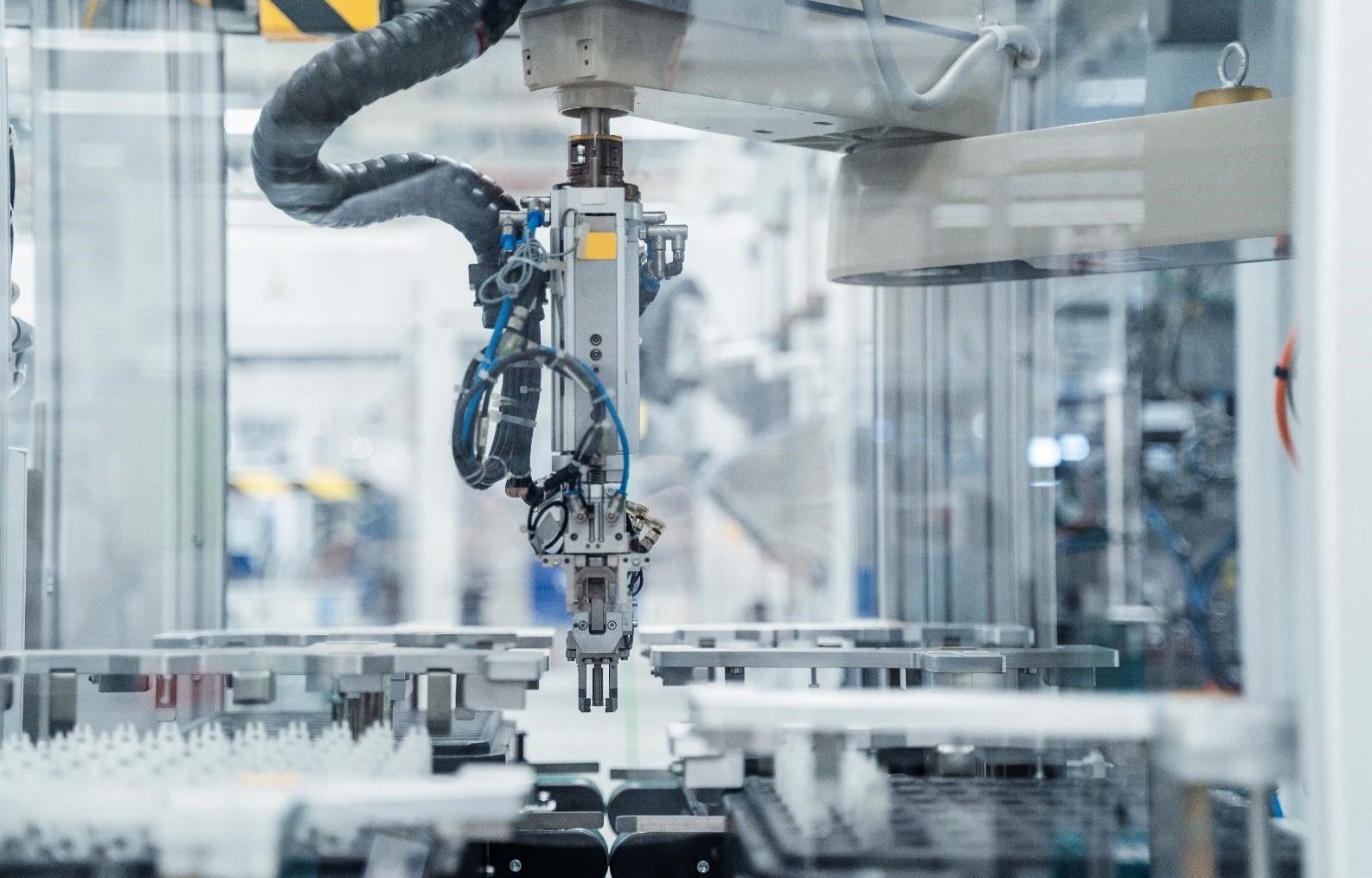The Pharmaceutical Sector, the Fourth Industrial Revolution, and the Future
The first industrial revolution saw mechanization through water and steam power, the second saw mass production and assembly lines using electricity, the third adopted computers and automation, and the fourth is set to build on this further, with smart and autonomous systems fuelled by data and machine learning.

However, as PwC / Strategy& point out, the pharmaceutical industry has – up until now – been cautious in applying digital technology to improve manufacturing and supply chain operations, and unfortunately this caution is now becoming a hindrance.
The pharmaceutical sector faces growing challenges — including globalization, great supply chain complexity, price and cost pressure, and the advent of personalized medicine.
Digitalization and the complete adoption of all that Industry 4.0. has to offer will be at the centre of helping the pharmaceutical sectorgenerally, and the serialization track-and-trace sector specifically, meet these new developments.
However, what will the true impact of Industry 4.0. be – and how prepared for it are we?
What benefits will Industry 4.0. bring?
While Industry 4.0has been called a new industrial revolution, its implementation will more likely resemble an evolution in which digitalization and automation meet very complex product portfolios and lifecycles.
Digitalization will connect everything, creating new levels of transparency and adaptivity for a digitalized plant floor. This will enable faster decisionmaking and provide in-line and in-time control over business, operations, and quality. It will also require higher levels of security, since connected systems heighten vulnerability.
A combination of cyber-physical systems, the Internet of Things and the Internet of Systems will power Industry 4.0 and allow the smart factory to become a reality. As a result of the support of smart machines that keep getting smarter as they get access to more data, the global pharmaceutical sector will become more efficient and productive and less wasteful.
Ultimately, it’s the network of these machines that are digitally connected with one another and create and share information that will result in the true power of Industry 4.0.
On the surface, the pharmaceutical sector seems like an efficient machine, producing all the medications, drugs and medical supplies needed by the globe’s population. Indeed, the adoption of Industry 4.0. up until the beginning of 2020 would have appeared a simple process.
However, the advent of the Covid pandemic revealed how this was far from the reality.
The Covid fly in the ointment
The world was placed into lockdown to prevent the virus spreading, but this led to major logistical issues. Problems with sourcing the quality and quantity of supplies needed, and ongoing problems with getting them distributed across the globe, are still being experienced now. While we might not be able to prevent another virus if one flares up in the future, continued digital investment will sit at the centre of our sector’s ability to mobilize itself quickly, efficiently, and effectively.
Digitization will sit at the very heart of Industry 4.0. It will connect everything, creating new levels of transparency and adaptivity for a digitalized plant floor, incorporating cyber-physical systems, Internet of Things, cloud computing, cognitive computing, and artificial intelligence, all of which will work together to ensure we are able to overturn another future pandemic, if we are unlucky enough to experience another one.
It goes without saying that Covid has caused distress for the entire population of the world. It has led to deaths, illnesses, long-term disabilities, job-losses and has ravaged the global economy.
However, one of its “benefits” (although I use the term “benefits” loosely) is proving that the pharmaceutical sector was wholly unprepared for Industry 4.0. It underlined what we need to collectively do now to ensure we can embrace all that the fourth industrial revolution can offer us and emerge as a much stronger collective entity now and in the future.
Continued track & trace cooperation
The advent of the virus has highlighted the importance for product track & trace to work together, resulting in a supply-chain which will minimize costs for pharmaceutical companies and lead towards a new standard of openness and cooperation in the Industry 4.0. era.
Indeed, we are already seeing the implementation of agile supply chain regulation which will require a strong industry-standard open interface and interoperability. To do this, the hardware and the software among different vendors needs to be much more aligned and should work much closer together, resulting in much more open and cooperative serialization processes. Machines need to speak to each other in a common language, regardless of the manufacturer. The importance of this cannot be over-stated. To be able to track every single item, at every single stage of the process from source to supply to consumer, is essential.
This will be a particularly important for the everyday production of personalised medication. It will give all concerned – from the producer through to the end consumer – the confidence their individual needs are being met and will enable complex prescriptions to be produced as a matter of routine.
This will be made more difficult without the wholesale adoption of Industry 4.0. and the coordinated benefits it will bring to the track and trace sector.
Advanco has been calling for a much more open track-and-trace sector for many years now and we are looking forward to the progress that Industry 4.0. will bring to this aim. We wholeheartedly call for all other track-and-trace providers to share this view so we can all work together for the good of the pharmaceutical sector and the eradication of counterfeit products, something that continues to blight the world.
The practical applications of Industry 4.0.
Industry 4.0. will revolutionise the way the pharmaceutical sector works. Once only possible for international blue-chip corporations, robotics will become much more affordable and available to organizations of every size. From picking products at a warehouse to getting them ready to ship, autonomous robots can quickly and safely support manufacturers. Likewise, we will see distribution centres that will use autonomous cranes and trucks to streamline operations as they accept shipping containers from the ships.
Since connected machines collect a tremendous volume of data that can inform maintenance, performance, and other issues, as well as analyse that data to identify patterns and insights that would be impossible for a human to do in a reasonable timeframe, Industry 4.0 offers the opportunity for manufacturers to optimize their operations quickly and efficiently by knowing what needs attention.
We will also see logistics and supply chains optimised much more than we have seen before. A connected supply chain will adjust and accommodate when new information is presented. If, for example, a weather delay ties up a shipment, a connected system can proactively adjust to that reality and modify manufacturing priorities.
Conclusion
Industry 4.0. will give the pharmaceutical sector an opportunity to revolutionise the way it works. The ability for individual companies to cooperate and complement each other in real time will enable giant strides to be made for the overall efficiency of the sector.
All individual components of the pharmaceutical sector, be it medicine producers, track-and-trace specialists, or logistics providers, need to look now at what they need to do to prepare for Industry 4.0. Indeed, large components of it are already here and have been adopted by many organisations without realising it. A much bigger and much more proactive push will enable a smooth transition for other aspects – and will enable a much tighter, coordinated pharmaceutical sector, which will benefit us all.
View the original article here.



